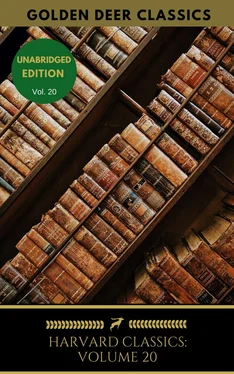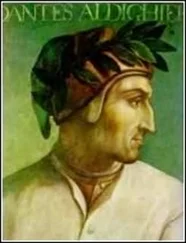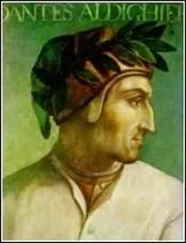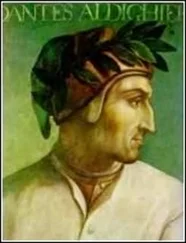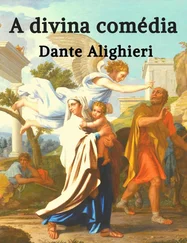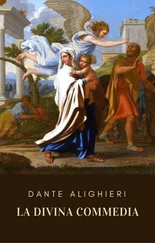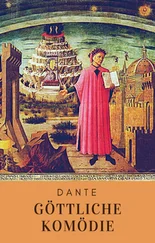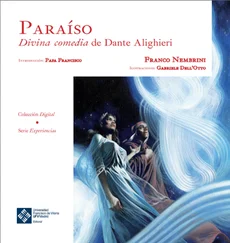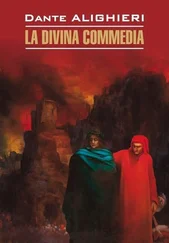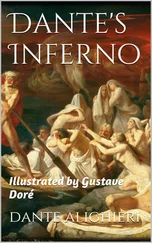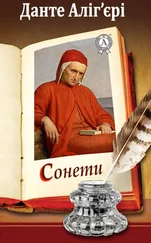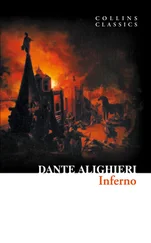Array Dante Alighieri - Harvard Classics Volume 20
Здесь есть возможность читать онлайн «Array Dante Alighieri - Harvard Classics Volume 20» — ознакомительный отрывок электронной книги совершенно бесплатно, а после прочтения отрывка купить полную версию. В некоторых случаях можно слушать аудио, скачать через торрент в формате fb2 и присутствует краткое содержание. Жанр: unrecognised, на английском языке. Описание произведения, (предисловие) а так же отзывы посетителей доступны на портале библиотеки ЛибКат.
- Название:Harvard Classics Volume 20
- Автор:
- Жанр:
- Год:неизвестен
- ISBN:нет данных
- Рейтинг книги:5 / 5. Голосов: 1
-
Избранное:Добавить в избранное
- Отзывы:
-
Ваша оценка:
- 100
- 1
- 2
- 3
- 4
- 5
Harvard Classics Volume 20: краткое содержание, описание и аннотация
Предлагаем к чтению аннотацию, описание, краткое содержание или предисловие (зависит от того, что написал сам автор книги «Harvard Classics Volume 20»). Если вы не нашли необходимую информацию о книге — напишите в комментариях, мы постараемся отыскать её.
1. The Divine Comedy, by Dante Alighieri
Also available:
The Complete Harvard Classics Collection (51 Volumes + The Harvard Classic Shelf Of Fiction)
50 Masterpieces You Have To Read Before You Die (Golden Deer Classics)
Harvard Classics Volume 20 — читать онлайн ознакомительный отрывок
Ниже представлен текст книги, разбитый по страницам. Система сохранения места последней прочитанной страницы, позволяет с удобством читать онлайн бесплатно книгу «Harvard Classics Volume 20», без необходимости каждый раз заново искать на чём Вы остановились. Поставьте закладку, и сможете в любой момент перейти на страницу, на которой закончили чтение.
Интервал:
Закладка:
Of the first circle that surrounds the abyss.
Here, as mine ear could note, no plaint was heard
Except of sighs, that made the eternal air
Tremble, not caused by tortures, but from grief
Felt by those multitudes, many and vast,
Of men, women, and infants. Then to me
The gentle guide: “Inquirest thou not what spirits
Are these which thou beholdest? Ere thou pass
Farther, I would thou know, that these of sin
Were blameless; and if aught they merited,
If profits not, since baptism was not heirs,
The portal [22]to thy faith. If they before
The Gospel lived, they served not God aright;
And among such am I. For these defects,
And for no other evil, we are lost;
Only so far afflicted, that we live
Desiring without hope.” Sore grief assail’d
My heart at hearing this, for well I knew
Suspended in that Limbo many a soul
Of mighty worth. “O tell me, sire revered!
Tell me, my master!” I began, through wish
Of full assurance in that holy faith
Which vanquishes all error; “say, did e’er
Any, or through his own or other’s merit,
Come forth from thence, who afterward was blest?”
Piercing the secret purport [23]of my speech,
He answer’d: “I was new to that estate
When I beheld a puissant one [24]arrive
Amongst us, with victorious trophy crown’d.
He forth the shade of our first parent drew,
Abel, his child, and Noah righteous man,
Of Moses lawgiver for faith approved,
Of patriarch Abraham, and David king,
Israel with his sire and with his sons,
Nor without Rachel whom so hard he won,
And others many more, whom He to bliss
Exalted. Before these, be thou assured,
No spirit of human kind was ever saved.”
We, while he spake, ceased not our onward road,
Still passing through the wood; for so I name
Those spirits thick beset. We were not far
On this side from the summit, when I kenn’d
A flame, that o’er the darken’d hemisphere
Prevailing shined. Yet we a little space
Were distant, not so far but I in part
Discover’d that a tribe in honour high
That placed possess’d. “O thou, who every art
And science valuest! who are these, that boast
Such honor, separate from all the rest?”
He answer’d: “The renown of their great names,
That echoes through your world above, acquires
Favor in Heaven, which holds them thus advanced.”
Meantime a voice I heard: “Honor the bard
Sublime! his shade returns, that left us late!”
No sooner ceased the sound, that I beheld
Four mighty spirits toward us bend their steps,
Of semblance neither sorrowful nor glad.
When thus my master kind began: “Mark him,
Who in his right hand bears that falchion keen,
The other three preceding, as their lord.
This is that Homer, of all bards supreme:
Flaccus the next, in satire’s vein excelling;
The third is Naso; Lucan is the last.
Because they all that appellation own,
With which the voice singly accosted me,
Honouring they greet me thus, and well they judge.”
So I beheld united the bright school
Of him the monarch of sublimest song, [25]
That o’er the others like an eagle soars.
When they together short discourse had held,
They turn’d to me, with salutation kind
Beckoning me; at the which my master smiled:
Nor was this all; but greater honour still
They gave me, for they made me of their tribe;
And I was sixth amid so learn’d a band.
Far as the luminous beacon on we pass’d,
Speaking of matters, then befitting well
To speak, now fitter left untold. At foot
Of a magnificent castle we arrived,
Seven times with lofty walls begirt, and around
Defended by a pleasant stream. O’er this
As o’er dry land we pass’d. Next, through seven gates,
I with those sages enter’d, and we came
Into a mead with lively verdure fresh.
There dwelt a race, who slow their eyes around
Majestically moved, and in their port
Bore eminent authority: they spake
Seldom, but all their words were tuneful sweet.
We to one side retired, into a place
Open and bright and lofty, whence each one
Stood manifest to view. Incontinent,
There on the green enamel of the plain
Were shown me the great spirits, by whose sight
I am exalted in my own esteem.
Electra [26]there I saw accompanied
By many, among whom Hector I knew,
Anchises’ pious son, and with hawk’s eye
Cæsar all arm’d, and by Camilla there
Penthesilea. On the other side,
Old King Latinus seated by his child
Lavinia, and that Brutus I beheld
Who Tarquin chased, Lucretia, Cato’s wife
Marcia, with Julia [27]and Cornelia there;
And sole apart retired, the Soldan fierce. [28]
Then when a little more I raised my brow,
I spied the master of the sapient throng, [29]
Seated amid the philosophic train.
Him all admire, all pay him reverence due.
There Socrates and Plato both I mark’d
Nearest to him in rank, Democritus,
Who sets the world at chance, [30]Diogenes,
With Heraclitus, and Empedocles,
And Anaxagoras, and Thales sage,
Zeno, and Dioscorides well read
In nature’s secret lore. Orpheus I mark’d
And Linus, Tully and moral Seneca,
Euclid and Ptolemy, Hippocrates,
Galenus, Avicen, and him who made
That commentary vast, Averroes. [31]
Of all to speak at full were vain attempt;
For my wide theme so urges, that oft-times
My words fall short of what bechanced. In two
The six associates part. Another way
My sage guide leads me, from that air serene,
Into a climate ever vex’d with storms:
And to a part I come, where no light shines.
Canto V
Argument.—Coming into the second circle of Hell, Dante at the entrance beholds Minos the Infernal Judge, by whom he is admonished to beware how he enters those regions. Here he witnesses the punishment of carnal sinners, who are tossed about ceaselessly in the dark air by the most furious winds. Among these, he meets with Francesca of Rimini, through pity at whose sad tale he falls fainting to the ground.
From the first circle I descended thus
Down to the second, which, a lesser space
Embracing, so much more of grief contains,
Provoking bitter moans. There Minos stands,
Grinning with ghastly feature: he, of all
Who enter, strict examining the crimes,
Gives sentence, and dismisses them beneath,
According as he foldeth him around:
For when before him comes the ill-fated soul,
It all confesses; and that judge severe
Of sins, considering what place in Hell
Suits the transgression, with his tail so oft
Himself encircles, as degrees beneath
He dooms it to descend. Before him stand
Always a numerous throng; and in his turn
Each one to judgment passing, speaks, and hears
His fate, thence downward to his dwelling hurl’d.
“O thou! who to this residence of woe
Approachest!” when he saw me coming, cried
Minos, relinquishing his dread employ,
“Look how thou enter here; beware in whom
Thou place thy trust; let not the entrance broad
Deceive thee to thy harm.” To him my guide:
“Wherefore exclaimest? Hinder not his way
By destiny appointed; so ’tis will’d,
Where will and power are one. Ask thou no more.”
Now ’gin the rueful wailings to be heard.
Now am I come where many a plaining voice
Smites on mine ear. Into a place I came
Where light was silent all. Bellowing there groan’d
Читать дальшеИнтервал:
Закладка:
Похожие книги на «Harvard Classics Volume 20»
Представляем Вашему вниманию похожие книги на «Harvard Classics Volume 20» списком для выбора. Мы отобрали схожую по названию и смыслу литературу в надежде предоставить читателям больше вариантов отыскать новые, интересные, ещё непрочитанные произведения.
Обсуждение, отзывы о книге «Harvard Classics Volume 20» и просто собственные мнения читателей. Оставьте ваши комментарии, напишите, что Вы думаете о произведении, его смысле или главных героях. Укажите что конкретно понравилось, а что нет, и почему Вы так считаете.
